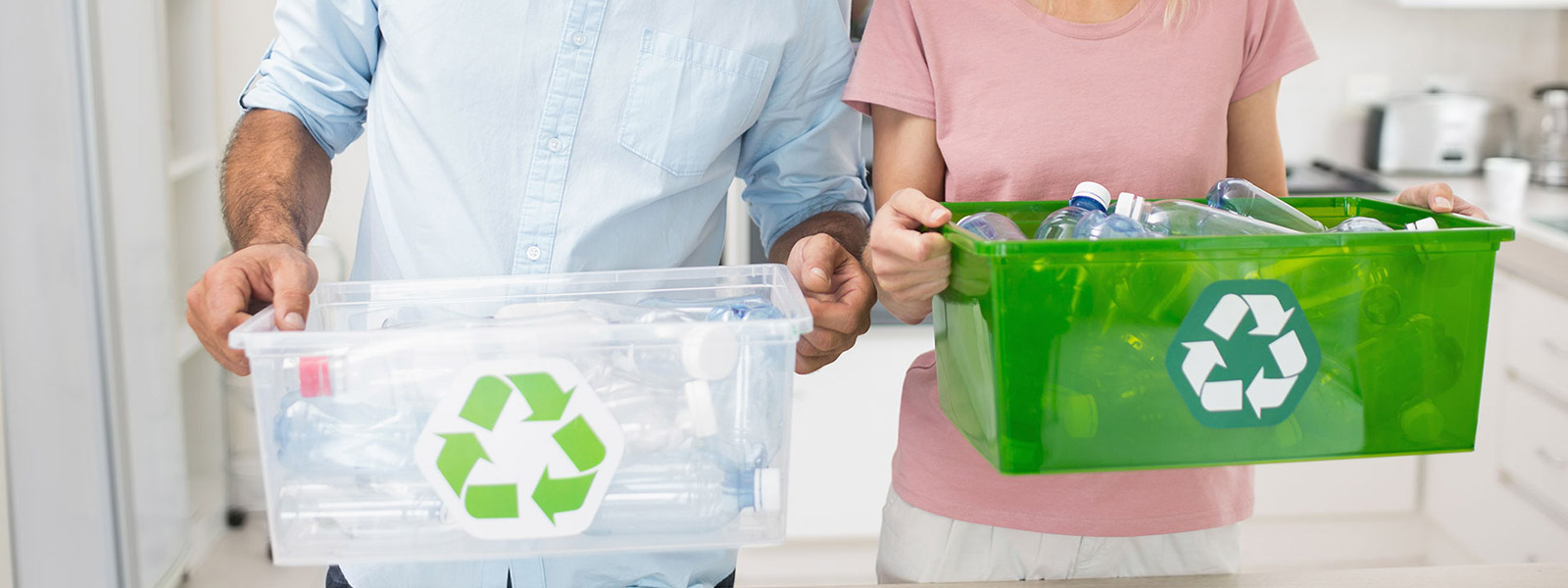Sustainable Plant Pot Disposal Methods Revealed
Posted on 24/05/2025
Sustainable Plant Pot Disposal Methods Revealed
Sustainability is at the heart of modern gardening. While nurturing our green spaces, we must also consider the environmental impact of seemingly minor objects--like plant pots. Most gardening enthusiasts accumulate a collection of unwanted containers, from plastic nursery pots to broken ceramics. Disposing of these responsibly is crucial for reducing landfill waste and promoting eco-friendly practices. This comprehensive guide will reveal various sustainable plant pot disposal methods, including recycling, upcycling, and eco-conscious alternatives.

Why Sustainable Plant Pot Disposal Matters
Every year, millions of plant pots are thrown away, contributing to global plastic pollution and landfill growth. Since pots are often made from non-biodegradable materials, their improper disposal can negatively affect soil and water quality. Implementing sustainable pot disposal solutions conserves resources, minimizes greenhouse gas emissions, and supports a circular economy where materials have multiple lives.
Environmental Impact of Traditional Plant Pot Disposal
- Most plastic pots are not curbside recyclable and end up in landfills, where they take centuries to decompose.
- Broken ceramic and terra cotta pots add to landfill bulk and are never reused for their original purpose.
- Pots made from coir, peat, or biodegradable plastics can help, but only if composted or disposed of correctly.
Understanding these impacts is the first step toward making greener choices for plant pot disposal.
Types of Plant Pots and Their Disposal Challenges
Identifying the material of your plant pots determines the most appropriate sustainable disposal method. The most common types are:
- Plastic nursery pots
- Ceramic and clay pots
- Biodegradable pots (coir, peat, compostable plastics)
- Metal pots
- Wooden planters
Each pot type presents *unique* challenges for proper disposal. Let's explore each one in more detail.
Plastic Plant Pot Disposal
Plastic pots are the most common and the most problematic. Black plastic, typically used for nursery pots, often can't be recycled curbside because sorting systems cannot detect it, leading to landfill accumulation.
Ceramic and Clay Pot Disposal
Ceramic and clay pots break easily and are heavy. While ceramics do not leach chemicals like plastics, they're unlikely to biodegrade or be recycled traditionally. However, their inert nature makes them safe for certain upcycling projects.
Biodegradable Plant Pot Disposal
Biodegradable options are increasingly popular, made from materials such as peat, coir (coconut fiber), wood pulp, or compostable plastics. Proper composting is key to harnessing their environmental benefits.
Other Pot Materials
Metal and wooden pots are less common but present different disposal opportunities--mainly recycling and composting, respectively.
Ultimate Guide to Sustainable Plant Pot Disposal Methods
Ready for a zero-waste garden? Below, we unveil the most effective and sustainable ways to handle unwanted plant pots for every material.
1. Reusing and Upcycling Plant Pots
*Before* throwing plant pots away, consider if they can enjoy a second life. Many pots are perfectly reusable--even if cracked or faded.
- Reuse for New Plants: Simply wash and sanitize pots to use for future plantings.
- Organizers: Use small pots to store office supplies, garden tools, or craft materials.
- DIY Decor: Paint and decorate pots for unique plant arrangements, candle holders, or lanterns.
- Art Projects: Broken ceramics make excellent mosaics for stepping stones, garden borders, or wall art.
*Upcycling* is not only sustainable--it's also fun and promotes creativity!
2. Donating and Sharing Plant Pots
- Community Gardens: Many community gardens and horticultural societies appreciate donated pots for propagation or plant sales.
- Nurseries and Garden Centers: Some offer return or reuse programs, accepting old pots for refilling or recycling.
- Online Sharing Platforms: List excess pots on community boards, social media, or apps like Freecycle, Nextdoor, or Facebook Marketplace.
Embracing a culture of sharing not only supports sustainable plant pot disposal but also fosters local gardening communities.
3. Recycling Plastic Plant Pots
If reuse isn't possible, recycling is the next best sustainable plant pot disposal strategy. However, not all plastics are created equal. Review these steps:
- Identify Resin Code: Turn the pot over for a recycling code--ideally numbers 2 (HDPE), 5 (PP), or sometimes 1 (PET). Code 6 and black plastics are often not recyclable curbside.
- Check Local Guidelines: Many municipalities accept certain plastic pots at special drop-off points--never combine them with regular curbside recycling unless specified.
- Clean Thoroughly: Remove soil and plant debris; dirty pots may be rejected by recyclers.
- Participate in Take-Back Programs: Some retailers (such as Home Depot, Lowe's, or local nurseries) run pot recycling schemes. Call ahead to confirm details.
*Remember*, every recycled pot saves resources and energy that would be needed to produce new plastics!
4. Composting Biodegradable Pots
Compostable plant pots are increasingly common:
- Peat Pots: Made from natural peat moss; break down quickly in home compost or directly in the ground.
- Coir Pots: Derived from coconut husk; take a bit longer, but will eventually decompose in compost bins.
- Biodegradable Plastics: Look for certifications such as ASTM D6400 or EN13432, which verify compostability.
To compost successfully:
- Tear pots into smaller pieces to speed up the decomposing process
- Moisten and mix with "green" compost material like food scraps or grass clippings
- Avoid pots with plastic coatings or synthetic linings, as these are not compostable
*Properly composted pots return nutrients to your garden--truly sustainable plant pot disposal!*
5. Recycling Ceramic and Clay Pots
While ceramic and terra cotta pots aren't typically accepted in traditional recycling systems, creative recycling is possible:
- Garden Drainage: Break into small pieces and use for drainage in larger pots or under outdoor pathways.
- Mosaics and Art: Incorporate shards into garden art, stepping stones, or even as mulch on flower beds (non-glazed pieces only).
- Construction Material: Some local recycling centers accept unglazed ceramics for use as aggregate.
If all else fails, hazardous waste facilities may provide a safe avenue for disposal--check your municipality.
6. Repurposing Wooden and Metal Pots
- Wooden Planters: Compost untreated wood, or break up and use as mulch or garden edging.
- Metal Pots: Clean and deliver to scrap metal recycling; rusted or damaged metal can be accepted by many facilities.
Wood and metal pots are generally more sustainable options--choose these for future plantings when possible.
Innovative Alternatives to Traditional Pots
Preventing waste is always better than managing it. Consider these sustainable alternatives to conventional plant containers:
- Grow Bags: Durable fabric planters made from recycled materials, widely reusable, and easier to dispose of responsibly.
- DIY Pots: Fold newspaper, use egg cartons, or upcycle household items before buying new containers.
- Biodegradable pots for all seedlings: Many nurseries now offer compostable options, encouraging sustainable plant pot use from the outset.
*Adopting these options means you'll have fewer pots to dispose of in the future.*
What Not To Do: Unsustainable Pot Disposal Practices
- Never burn plastic pots: Burning releases toxic chemicals harmful to health and the environment.
- Don't send pots to landfill if avoidable: Especially for plastics and ceramics, which will persist for hundreds of years.
- Avoid mixing compostable and non-compostable pots: This can contaminate compost bins and recycling streams.
Tips for Reducing Future Pot Waste
- Buy in bulk: Purchasing plants in bulk can reduce excess packaging and pots.
- Ask nurseries about pot return programs: Support businesses with circular practices.
- Opt for plants grown in compostable pots: Encourage demand for sustainable alternatives.
- Maintain and repair: Patch up reusable pots instead of replacing them.
*Being proactive is the most sustainable choice!*

Frequently Asked Questions About Sustainable Plant Pot Disposal
Can I recycle all plastic pots?
No, not all plastic pots are curbside recyclable. Check for recycling symbols and local guidelines. Black plastic is usually not accepted.
What should I do with broken ceramic pots?
Broken ceramics can become garden drainage, mosaic art, or be taken to certain recycling facilities. Never place them in glass or standard recycling bins.
Are biodegradable pots always compostable?
Not always. Check packaging for compostability certifications. Some biodegradable plastics require commercial facilities.
Do nurseries take back old pots?
Many do! Call ahead to ask about their pot return policies or recycling programs.
Is it better to reuse or recycle pots?
*Reusing* is the greenest option--it conserves the most resources and energy. Recycle only when reuse isn't possible.
Conclusion: Choosing Sustainable Plant Pot Disposal Is Simple--and Essential
Adopting sustainable plant pot disposal methods not only keeps your garden eco-friendly but also contributes to wider environmental conservation efforts. From upcycling and sharing to careful *recycling* and investing in natural alternatives, your choices pave the way for a cleaner, greener world. Start today--clean out your garden shed and rethink what those old pots could become!
Let your garden thrive--and let the planet thrive with it. Sustainable plant pot disposal is the seed of a better tomorrow.
Latest Posts
Why We Need Effective Waste Clearance Services
Create a Productive Environment by Clearing Out Your Office Successfully
Elevate Your Home Recycling with These Practical Suggestions

 020 3409 4688
020 3409 4688 020 3409 4688
020 3409 4688




 House clearance
House clearance Waste Removal
Waste Removal Here at Rubbish Collection we offer an efficient and affordable house clearance at the best price. We can perform full domestic clearance in London, removing...
Here at Rubbish Collection we offer an efficient and affordable house clearance at the best price. We can perform full domestic clearance in London, removing... Waste can accumulate quickly and before you know it, it’s everywhere and taking up lots of space. If you would like it professionally removed, hire Rubbish Collection for the...
Waste can accumulate quickly and before you know it, it’s everywhere and taking up lots of space. If you would like it professionally removed, hire Rubbish Collection for the...





